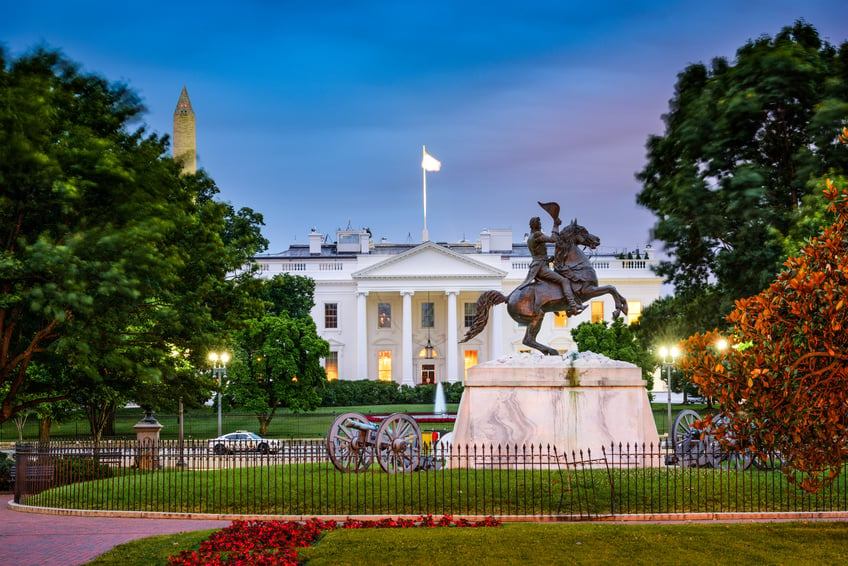Like their counterparts in other countries, the US antitrust agencies have begun considering and in some cases have already implemented changes to antitrust review processes in response to the COVID-19 pandemic. Both the US Federal Trade Commission (FTC) and the US Department of Justice (DOJ) have also announced measures geared to enabling the agencies to continue to function, with the head of the DOJ’s Antitrust Division stating that it “remains open for business,” and the FTC announcing that it was “reallocating resources across the [Competition] Bureau to maintain continuity of core operations.”
For an in-depth analysis of the antitrust risks emerging outside of the United States as a result of the pandemic, please find our most recent global update here: COVID-19 and Antitrust Law Global Update.
DOJ and FTC have adopted an expedited review procedure and issued guidance on collaborations in response to the pandemic.
On March 24th, the DOJ and FTC issued a joint statement1 announcing an expedited antitrust review procedure for collaborations, and also providing guidance on certain types of collaborations that may be especially important in responding to the current pandemic. Whereas the DOJ’s Business Review Process and FTC’s Advisory Opinion Process can take months to provide guidance on proposed business conduct, the agencies have announced that they “will aim to respond expeditiously to all COVID-19-related requests, and to resolve those addressing public health and safety within seven (7) calendar days of receiving all necessary information.”
The agencies’ statement also acknowledges the need for some individuals and businesses to act immediately to address the public health emergency (i.e., without time to seek formal guidance from the DOJ or FTC), and the statement provides guidance on several specific types of collaborative activities that “would be consistent with the antitrust laws,” such as collaborating on research and development, “sharing technical know-how, rather than company specific data about prices, wages, outputs, or costs,” as well as joint purchasing arrangements among healthcare providers.
FTC’s Bureau of Competition has announced a range of procedural and substantive measures in response to COVID-19 that will affect merger control.
The FTC’s Bureau of Competition recently announced a series of measures it had already taken or would be taking in response to the COVID-19 pandemic. The measures the Bureau announced range from procedural to more material changes that could potentially impact the timing of case resolutions. On the procedural side, most notably the Bureau announced that although the Premerger Notification Office will continue to accept HSR filings, those filings must be submitted electronically via a temporary e-filing system. Parties filing via the new system are advised to familiarize themselves with the rules and requirements of the new system well in advance of when they need to file, particularly in the coming days as the agencies fine tune the system. Although the agencies initially announced that they would not be granting early termination for any HSR filings under the temporary system, early terminations have since resumed effective March 30, though as the FTC highlighted in its announcement,2 “[e]arly termination will be granted but only as time and resources allow.” At this time, the agencies have also advised that “[p]arties and their counsel should not call the PNO or the litigation shops to advocate for early termination of the waiting period applicable to a notified transaction,” as doing so under current resource constraints will slow the agencies’ review—not expedite it. Details and instructions for using the system are available here. The Department of Justice will implement the same procedures.
Also on the procedural side, the Bureau announced changes that will impact the way parties will interact with the FTC. Virtually all FTC employees—like employees at many companies and in most government offices—are now working remotely, meaning that, unsurprisingly, almost all meetings, including meetings with the FTC Front Office, will be by telephone or videoconference. The Bureau has also imposed travel restrictions on employees and has been “reallocating resources across the Bureau”—all of which is likely to have a disruptive effect on its activities, the scope of which is still not entirely clear.
On the substantive side, the Bureau announced that it is “conducting a matter-by-matter review of [its] investigations and litigations to consider appropriate modifications of statutory or agreed-to timing.” According to the Bureau, companies should be prepared for requests for modifications and they are welcome to contact Bureau staff proactively to begin such discussions.
DOJ’s Antitrust Division announced changes that closely mirror those of the FTC.
The DOJ’s Antitrust Division similarly announced3 a range of changes to its civil merger investigation process that it stated “will remain in place during the pendency of the coronavirus (COVID-19) event.”
The Antitrust Division specifically announced on March 17th that for transactions currently under review or that may be submitted for review, the Division “is requesting from merging parties an additional 30 days to timing agreements to complete its review of transactions after the parties have complied with document requests.” The Division has published on its website a revised Model Timing Agreement4 with parties that would extend the post-compliance period from sixty to ninety days and recognizes “that it may become appropriate to revisit agreements, and to amend, shorten, extend, or cancel them, in light of developments in the unfolding COVID-19 situation.”
According to news reports of a DOJ proposal that has not been made public, the DOJ is also asking Congress, as part of its next COVID-19 response legislation, for permission to extend deadlines on merger reviews and certain antitrust prosecutions.5 On the merger front, the proposal would give the DOJ and FTC an additional 15 days (45 days instead of the current 30) to review transactions notified under the HSR Act. On the prosecution front, the proposal would extend the statute of limitations applicable to price-fixing and bid-rigging cases for at least six months in response to the current crisis. That would afford DOJ prosecutors additional time beyond the current five-year statute of limitations to conclude their investigations. In part, the request for additional time to move forward with prosecutions stems from the practical difficulty of convening a federal grand jury in a small room at a time when individuals are being instructed to maintain a distance of six feet from others.
Like the FTC, the DOJ is also accepting HSR filings via the temporary e-filing system described above and will be conducting all meetings by phone or videoconference unless there are “extenuating circumstances.” Notably for parties with depositions scheduled with the Antitrust Division, it announced that “[a]ll scheduled depositions temporarily will be postponed and will be rescheduled using secure videoconferencing capabilities.”
Officials at the federal and state level in the United States respond to threat of price-gouging.
Four congressional Democrat committee chairs wrote a letter to FTC Chairman Joseph Simons on March 17th urging the FTC to take action to protect consumers from price-gouging. The letter noted that as a result of the COVID-19 crisis “a number of essential items have become scarce,” “[h]ealthcare workers are being asked to reuse personal protective equipment,” and “many Americans are unable to find essential household items such as hand sanitizer and cleaning supplies in their local stores or online marketplaces”—and at the same time, “profiteers … are hoarding the very same supplies or charging unconscionable prices.” The authors of the letter asked the FTC to “take immediate action” to address the dire situation during the current declared public health emergency, and noted that they would simultaneously be pursuing “other means, including legislation,” to assist the FTC’s efforts.
As we noted in our last newsletter, many states have the power to take action against sales above normal prices during declared periods of emergency, and states are expected to continue to play a key role in policing alleged price-gouging. For example, on March 15, the Governor of Michigan signed an executive order prohibiting anyone, beginning on March 16, from offering or selling any product at more than a 20% markup from the March 9, 2020 price. And in Oregon, the state’s Attorney General sent a letter to the state’s governor requesting an immediate declaration of an “abnormal disruption of the market” as defined under state law, which would allow the attorney general to take action against any business that “upsells the price of essential consumer goods by more than 15 percent.”
Other state governors and state attorney generals are taking similar steps. Most recently, on March 25, a group of 33 state attorneys general wrote letters to several of the largest U.S. online platforms requesting that those businesses more rigorously monitor and take action against price-gouging practices by online sellers.6 Specifically, the letters urged the platforms to (i) “[s]et policies and enforce restrictions on unconscionable price gouging during emergencies, (ii) “[t]rigger price gouging protections independent of, or prior to an emergency declaration,” and (iii) “[c]reate and maintain a ‘Fair Pricing’ Page/Portal where consumers can report price gouging incidents … directly.”
The DOJ previously warned businesses against violating antitrust laws in connection with the sale of public health products—for example, through price-fixing or bid-rigging. Although not directly related to antitrust enforcement, on March 22, 2020, the Justice Department filed its first COVID-19-related enforcement action in a case involving an alleged fraudulent website offering COVID-19 vaccine kits. The case suggests the DOJ is prioritizing action against abuses stemming from the current crisis, and that additional enforcement actions are likely to follow.
1 https://www.justice.gov/atr/joint-antitrust-statement-regarding-covid-19
4 https://www.justice.gov/atr/page/file/1258826
5 POLITICO, “DOJ wants more time on merger reviews, price-fixing cases because of pandemic,” available at https://www.politico.com/news/2020/03/21/doj-merger-reviews-coronavirus-140669# (March 21, 2010).
7 https://www.attorneygeneral.gov/wp-content/uploads/2020/03/03_25_2020_Multistate-letter.pdf






